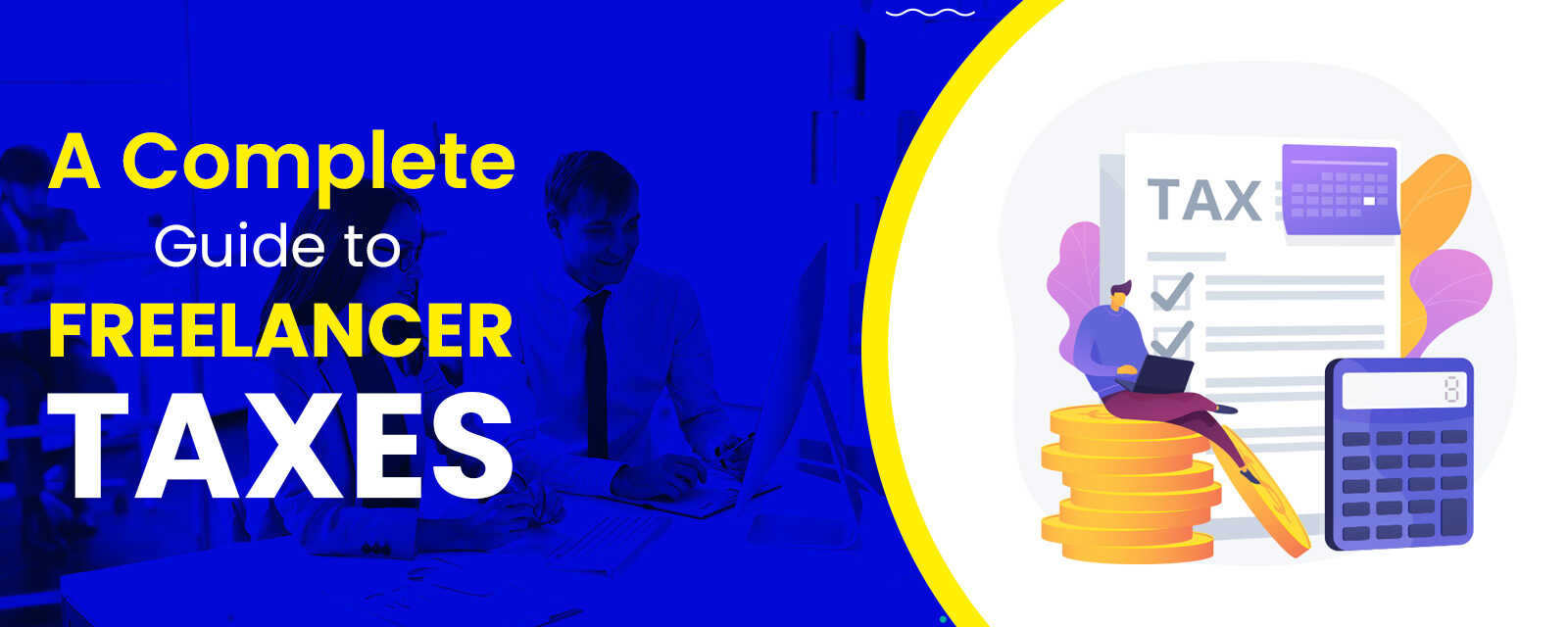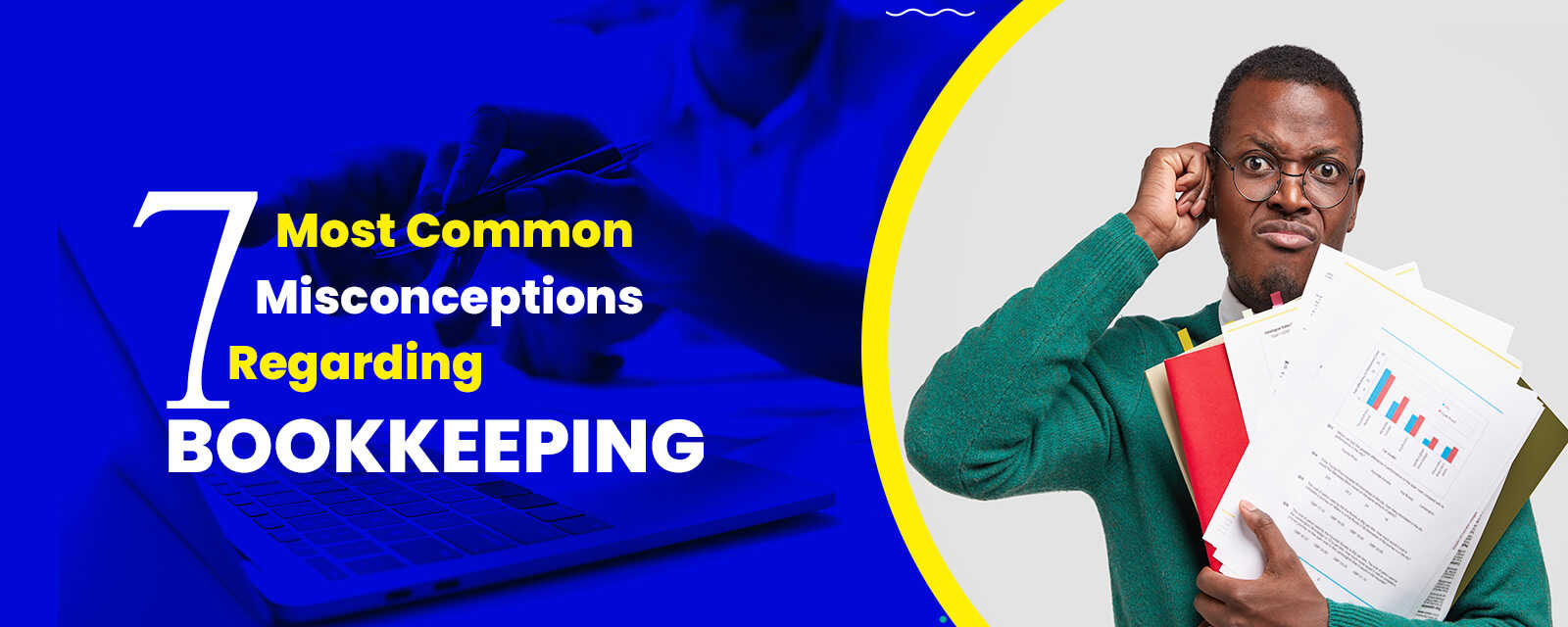beginners-guide
A Complete Guide to Freelancer Taxes
29/07/2021 7:21 AM

You work as a freelancer. You've given up the 9-to-5 and now work for yourself. There is no longer a boss, a stuffy workstation, or early morning meetings. You're working for yourself, selecting the clients you want to work with, and nothing is getting in your way. Then it occurs. You open your mailbox to find a 1099 form. You suddenly recall that tax season is just around the corner.
You work as a freelancer. You've given up the 9-to-5 and now work for yourself. There is no longer a boss, a stuffy workstation, or early morning meetings. You're working for yourself, selecting the clients you want to work with, and nothing is getting in your way. Then it occurs. You open your mailbox to find a 1099 form. You suddenly recall that tax season is just around the corner.
Tax season is a stressful time for many freelancers. If you're new to freelancing, it's easy to fall into anxiety and panic. What exactly are these forms you're getting in the mail? What forms do you submit? Is the IRS going to seize your entire salary?
Paying your taxes is one of the most terrifying duties you'll face as a freelancer.
Taxes for freelancers vary greatly from those for employees. Knowing what procedures to take throughout the year and during tax season is critical if you want to prevent a terrible encounter with your taxes.
Relax. Yes, taxes can be frightening, but for freelancers, planning and filing taxes isn't that difficult. If you've ever filed your tax return, you'll notice that handling freelance taxes isn't all that different. And if you haven't, what are you waiting for? Don't worry; you'll get the hang of it shortly.
We'll go over what freelance taxes are, how to pay freelance taxes, and everything in between. You'll be handling your taxes like a pro in no time. Are you ready to begin? Continue reading for our complete freelancing tax guide!
What Exactly Are Freelance Taxes and How Do They Work?
If you've ever worked, you're familiar with how taxes operate. You are paid on an hourly or salary basis, less federal and state taxes. Income taxes, including federal and state, are deducted from your income. Taxes are also deducted to fund programs like Medicare and Social Security. These taxes are calculated and deducted automatically from each income.
But what if you're a freelancer and don't get paid by an employer? You are still bound to pay taxes as a freelancer. However, your taxes will not be deducted immediately every time a client pays you. Instead, you must file additional forms together with your annual tax return and pay any taxes owed. You may be obliged to estimate your tax burden and pay taxes every quarter in some instances
Here are the several sorts of taxes that freelancers must pay!
Self-employment Taxes
If you earn $400 or more as a freelancer from any single employer in a year, the Internal Revenue Service defines you as self-employed and requires you to file taxes as a company owner. In addition to the ordinary income taxes depending on your tax bracket and filing status, you must pay a 15.3 % self-employment tax, which includes the Social Security and Medicare taxes you would normally pay, as well as the half often covered by a traditional employer.
"Some new solopreneurs and entrepreneurs are surprised when they learn they must pay self-employment tax," said Ellie Thompson, CEO of Money Therapy. "When you work for a company, taxes such as Medicare and Social Security are already taken from your salary. You must account for those on your own as an entrepreneur."
Federal Taxes
Federal income taxes are levied based on your taxable income. The federal income tax is divided into seven brackets. The rate you pay is determined by your taxable income and filing status. The rates range from 10% to 37%, with the top earners receiving the highest rates.
Federal income taxes pay federal activities such as national defense, social programs, law enforcement, and interest on the national debt.
IRS Form 1040 is used to calculate and report federal income taxes on your federal return. In rare situations, a taxpayer may have overpaid their taxes and is entitled to a refund. Many freelancers, however, may discover that they did not pay enough,, if any, taxes and will owe the IRS.
State Taxes
Most states also require you to pay income taxes, except a few states that do not have a state income tax. The state taxes collected are used for a variety of objectives, including education and healthcare, transportation, and public assistance.
State income tax is paid to the state (or states) in which you work, not necessarily the state in which you live. State income tax rates differ, with some having a flat rate and others employing brackets similar to federal income tax brackets. To determine your state income tax due, you must file a separate state return (or multiple forms if you earned income in more than one state).
Who is Eligible to Work as a Freelancer?
A freelancer is someone who works for themselves. For pay, this person does work for a client or a group of clients. The freelancers are effectively their boss, choosing their clients, working their hours, and determining their rate of pay.
Some people work as freelancers instead of working full-time for an employer. Others may work side jobs in addition to full- or part-time jobs. Freelancers can be paid in a variety of ways, including through an online freelancing platform, their websites or payment systems, or via paper check. Taxes are not taken from a freelancer's pay, unlike a payroll check.
You qualify as a freelancer if you do freelance work, whether full-time or part-time. Income taxes must be paid on any revenue earned as a freelancer, and self-employment tax is usually required as well.
How Much Should I Put Away For Taxes?
While it may be tempting to take all of your freelance money and run, you must pause to consider taxes. Your freelancing payments are not now taxed, but you will have to pay the IRS when the time comes. Instead of getting surprised with a large bill in the coming months, prepare ahead and begin preparing for your tax payments now.
You're probably thinking about how much money you should set up for freelance taxes. According to Dave Ramsey, freelancers should set aside 25% to 30% of their earnings for taxes. Other tax professionals and financial professionals agree that you should save 25% to 30% of your earnings to satisfy income and self-employment taxes. Sure, it will cut your funds now, but it will relieve you of tension when it comes time to pay your taxes.
When Do Freelance Taxes Get Due?
The IRS requires freelancers to file an annual income tax return. Tax returns must be filed with the IRS by April 15. Returns are due on the next business day if this date falls on a weekend or holiday. You can either e-file your return online or mail paper copies of your return.
You are not required to make a payment at this point if you file your return early. However, you will be forced to settle your tax liability by April 15th (or the following business day if April 15 falls on a weekend or holiday). Many individuals just mail their payments when they file their taxes. When you e-file, you can pay using a credit card, a debit card, or an e-check. If you file by mail, you must include a check or money order – do not include cash.
Failure to pay your taxes by the due date will result in interest and penalties, so pay as soon as possible.
One thing to keep in mind is that you can request an extension for your annual tax return. This provides you with an extra six months to file your tax return. An extension, on the other hand, does not provide you more time to pay. If you utilize an IRS tax extension to postpone tax payments, you may wind up owing significantly more when late penalties and interest are added to your tax bill.
If you need extra time to gather documents and file your return, estimate your tax burden, send your payment to the IRS, and use the time you have to complete your return.
If you find yourself in a situation where you are unable to pay your tax liability in full, the IRS provides payment arrangements. You can learn more by calling the IRS or signing up on their website.
Estimated Quarterly Payments
While some freelancers can simply file annual reports, many make estimated quarterly payments. The IRS states that:
“Individuals, including sole proprietors, partners, and S corporation shareholders, generally have to make estimated tax payments if they expect to owe tax of $1,000 or more when their return is filed.”
Each quarter, taxes are required. Freelancers must complete and submit the form along with payment. IRS quarterly taxes are due by the following dates:
15th of April, 15th of June, 15th of September, 15th of January
If any of these days fall on a holiday or weekend, the due date will be the following business day.
How to File Freelance Taxes
It is a lot less scary if you understand how to submit taxes for freelance work. By following these procedures, you may accurately complete and submit your federal tax return in no time. So gather your records, get out your calculator, and get ready to file and pay your freelancing taxes.
Collect Your 1099s
As a freelancer, you will receive Form 1099-MISC from any clients that paid you more than $600 in a year. It is important to note that even if you do not receive a 1099-MISC from a client, you must still report this income.
The IRS requires that 1099-MISC forms be mailed by January 31, so keep an eye out for them in the first few weeks of February. Contact your customer if you have not received your 1099s by mid-February. While you may receive your 1099s by mail, some businesses and individuals choose to send them by email or an online platform.
Gather all of your 1099s and other income documentation (such as transactions posted through your accounting software). When submitting your taxes, you will be asked to provide these to compute your income.
Estimate Your Deductions
Deductions, fortunately, can help you reduce your tax liability. Deductions are expenses paid to run your freelance business. You may be entitled to a variety of deductions, including:
- Deduction for self-employment taxes
- Deduction for home office
- Mileage for office supplies
These are just a handful of the deductions available to help you reduce your tax liability.
Send Your Tax Return to the IRS
There are two methods for completing your tax forms. You can do so online using tax preparation software. If you meet certain criteria, you may be eligible for several free filing options. Many tax software companies include additional tools and lessons to assist you in filing your taxes and maximizing your deductions.
You can also download paper forms directly from the IRS. Then you complete the forms and mail them in.
A Few Freelance Tax Tips for Easier Filing
You should now have a better idea of what to expect while submitting your freelancing taxes. But here are a few more pointers to make the procedure go as smoothly as possible.
Monitor Your Freelance Work Expenses & Income
Last-minute scrambling to gather invoices and documents can make tax season unpleasant — and increase your chances of making a potentially costly error while filling out your return. Rather than doing everything at the last minute, keep track of your income and expenditure throughout the year.
Accounting software is the most convenient way to keep track of your freelance revenue and costs. Accounting software nowadays includes a lot of time-saving capabilities, such as live bank feeds, automatic spending classification, and receipt scanning.
Additional freelancing tools, such as invoicing, estimations, project management, and time tracking, may be available to you. Best of all, there are several excellent accounting systems available for free or at a cheap cost. There is no better time to start than now.
Maintain Records and Receipts
Always maintain track of your records and receipts. This contains invoices from clients, a mileage log, and receipts for all expenses. To ensure accuracy, you (or an accountant) will utilize these documents to determine your income and deductions. These are also incredibly important if you are audited by the IRS. You should be able to prove your income and spending, and your records and receipts will serve as proof.
You can maintain your records and receipts in a variety of methods, but the key is to stay organized. For you, this could involve putting everything neatly in a filing cabinet, securely scanning and uploading your documents to cloud-based storage or scanning receipts with your accounting software. Stick with it and keep organized, no matter what strategy you employ.
Hiring an Accountant
If you are submitting your taxes for the first time, you might think about hiring an accountant. Concerned about the cost? Don't be; employing an accountant could potentially save you money.
An accountant can uncover deductions that you may have missed, resulting in a decreased tax liability. An accountant may also ensure that all forms are appropriately filled and submitted. This helps to avoid mistakes that could result in the payment of additional taxes, interest, and fines.
If you do decide to engage an accountant, make sure you have all of your files and documentation ready to save time and money.
Make Retirement Preparation a Top Priority
Many freelancers do not prioritize retirement planning because they are preoccupied with the day-to-day tasks of developing their business and contacting new clients. They may also believe they have few options because, as sole proprietors, they are unable to participate in employer-sponsored retirement plans.
"One of the most common misconceptions regarding retirement plans among freelancers is that they are extremely expensive," said Kurt Rossi, president and wealth advisor at Independent Wealth Management. "A retirement plan frequently gives substantial net after-tax advantages."
A solo 401(k) plan can be a viable option for a self-employed person or business owner who does not have any employees other than their spouse. The plan accepts the same contributions as a regular 401(k) profit-sharing plan, up to $56,000 ($62,000 for individuals over 50) or 100% of earned income, whichever is less. The funds are tax-deferred until taken.
Another approach to save for retirement is through Simplified Employee Pension IRA programs. With a SEP IRA, you can contribute up to 25% of your net earnings, or $56,000, whichever is less.
Traditional and Roth IRAs are among the most straightforward ways to begin saving for retirement as a freelancer. These are perfect for folks who are just getting started, save less than $6,000 a year or want to roll over a 401(k) from a previous job. Retirement withdrawals are tax-free.
The most important thing, regardless of the investment option you choose, is to get a strategy and get started."
Ending Note
Filing your freelance taxes should be simple if you plan and prepare throughout the year. Don't forget to use the many accounting and tax software alternatives available to assist you, or consult with a professional accountant to ensure your forms are accurate and submitted on time. Good luck!
If you want to submit your forms accurately and need assistance keep in touch with us!
Categories
Recently Posted

beginners-guide
7 Most Common Misconceptions Regarding Bookkeeping
12/10/2021 7:44 AM

beginners-guide
Top Reasons Why Accounting Marketing Fails
12/10/2021 8:35 AM

web-design
5 Reasons Why You Should Choose us to Build Your New Website
08/12/2021 12:35 PM

small-business-tips
10 Effective Ways to Promote Your Website for Free
10/02/2021 10:18 AM

small-business-tips
How Having a Bad Website Can Hurt Your Business
15/02/2021 1:27 PM
